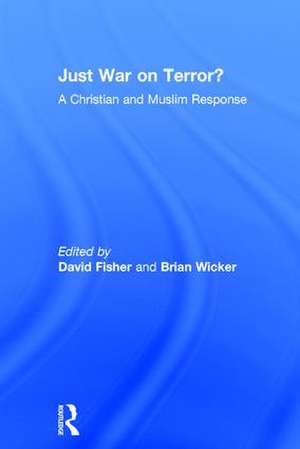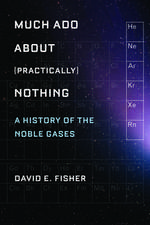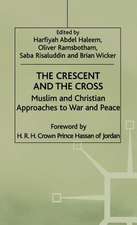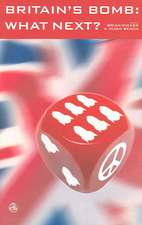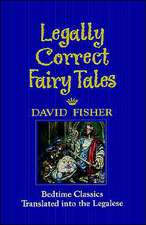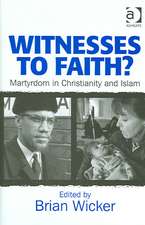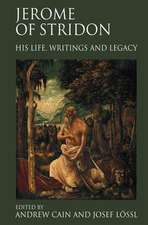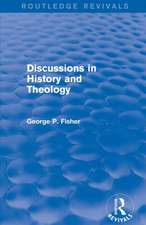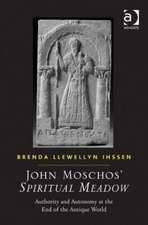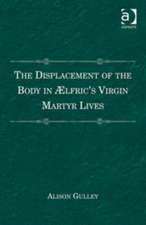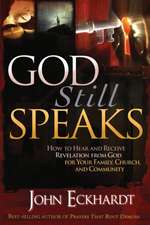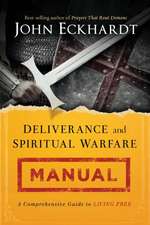Just War on Terror?: A Christian and Muslim Response
Autor Brian Wicker Editat de David Fisheren Limba Engleză Hardback – 28 iun 2010
| Toate formatele și edițiile | Preț | Express |
|---|---|---|
| Paperback (1) | 133.02 lei 6-8 săpt. | |
| Taylor & Francis – 28 iun 2010 | 133.02 lei 6-8 săpt. | |
| Hardback (1) | 375.50 lei 6-8 săpt. | |
| Taylor & Francis – 28 iun 2010 | 375.50 lei 6-8 săpt. |
Preț: 375.50 lei
Nou
Puncte Express: 563
Preț estimativ în valută:
71.85€ • 75.36$ • 59.82£
71.85€ • 75.36$ • 59.82£
Carte tipărită la comandă
Livrare economică 01-15 aprilie
Preluare comenzi: 021 569.72.76
Specificații
ISBN-13: 9781409408079
ISBN-10: 1409408078
Pagini: 242
Dimensiuni: 156 x 234 x 14 mm
Greutate: 0.59 kg
Ediția:1
Editura: Taylor & Francis
Colecția Routledge
Locul publicării:Oxford, United Kingdom
ISBN-10: 1409408078
Pagini: 242
Dimensiuni: 156 x 234 x 14 mm
Greutate: 0.59 kg
Ediția:1
Editura: Taylor & Francis
Colecția Routledge
Locul publicării:Oxford, United Kingdom
Recenzii
'Terrorism is the major threat facing many countries in the world and it is vital that we think clearly about the best way in which it can be countered, not just from a practical but also a moral point of view. I believe this book, with distinguished contributors, drawing on a wide range of experience and expertise, helps us greatly in this task.' Richard Harries, Lord Harries of Pentregarth 'Countering terrorism is crucial for us all. This joint Christian-Muslim response is both a valuable reminder of that fact and a source of specialist analysis and good advice.' Right Honourable Sir Malcolm Rifkind QC, MP, former Foreign Secretary and Secretary of State for Defence 'An essential read of both Muslim and Christian views for anyone interested in defeating the threat of terrorism that advances an extreme religious interpretation of events - our primary security concern.' General Sir Rupert Smith, Former Deputy Supreme Allied Commander in NATO and author of The Utility of Force ’[Philip Bobbitt's] penultimate contribution is followed by a gem of a concluding chapter, a quite terrific reflection by the two editors on the weaknesses of al-Qaeda and of US-led responses to them...the best contribution of all (is) the chapter by the UK's former security and intelligence coordinator and permanent secretary at the Home Office, Sir David Omand.... the best treatment I have read of the problem of counterterrorism from the security perspective...Omand is an insider through and through and the chapter oozes authority, but it is also humane, unpompous and challengingly intelligent.... The editors have done very well to have obtained such good stuff... it is a satisfying volume: manageable, readable and liberal without being smug.’ Times Higher Education 'Readers of these essays cannot fail to be stimulated by the insights brought by minds highly trained in religion, philosophy and military matters. They may also find themselves encouraged by the degree of consensus amon
Notă biografică
David Fisher was a senior official in the Ministry of Defence and Defence Adviser to the Prime Minister in the Cabinet Office. He is now undertaking research in the Department of War Studies at King's College, London. He regularly contributes to books and journal on defence and ethical issues and is the author of Morality and the Bomb, written when he was a research fellow at Nuffield College, Oxford. He is Co-Chairman of the Council on Christian Approaches to Defence and Disarmament. Brian Wicker was Principal of Fircroft College of Adult Education, Birmingham, having previously lectured in the Department of Adult Education in Birmingham University. He has been concerned with the ethics of war and nuclear deterrence for many years and has been Chairman/Vice-President of Pax Christi since the 1970s. He is Chairman of the Council on Christian Approaches to Defence and Disarmament for whom he has edited and contributed to several books, including Britain's Bomb: What Next? (SCM Press, 2006) and Witnesses to Faith? Martyrdom in Christianity and Islam (Ashgate, 2006).
Cuprins
Chapter 1 Introduction: A Clash of Civilisations?, David Fisher, Brian Wicker; Part 1 The Role of Religion in Shaping Terrorism and the Responses to it; Chapter 2 Terrorism and Islamic Theologies of Religiously-Sanctioned War, Tim Winter; Chapter 3 Challenging Al-Qa?ida’s Justification of Terror, Ahmad Achtar; Chapter 4 Introduction, Richard Lock-Pullan; Part 2 Responding to the Terrorist Threat; Chapter 5 Philip Bobbitt’s Terror and Consent : a Brief Critique, Michael Howard; Chapter 6 Just War and State Sovereignty, Brian Wicker; Chapter 7 Terror and Pre-Emption – Can Military Pre-Emption ever be Just?, David Fisher; Chapter 8 ) and idem ‘Ethical guidelines in using secret intelligence for public security’, The Cambridge Review of International Affairs, vol. 19, number 4 ()., David Omand; Part 3 New Ways to Counter the Threat; Chapter 9 Just Wars, Just Outcomes – Reconciling Just Outcomes in Military Intervention, Shenaz Bunglawala, Rosemary Durward, Paul Schulte; Chapter 10 ‘Eating Soup with a Knife’ – Counterinsurgency and Just War., Hugh Beach; Chapter 11 Going Off the Reservation into the Sanctuary–Cross-Border Counter-Terrorist Operations, Fourth Generation Warfare and the Ethical Insufficiency of Contemporary Just War Thinking, Paul Schulte; Chapter 12 Countering the Threat of Nuclear Terrorism, Nick RitchieDr.; Part 4 Afterword: Concluding Reflections; Chapter 13 A Re-emphasis more than a Reply, Philip Bobbitt; Chapter 14 Countering Terrorism Justly – Reflections Nine Years After 9/11, David Fisher, Brian Wicker;
Descriere
Following the 9/11 attacks by Al-Qa'ida, President Bush declared war on terror. In the succeeding years, Western governments have struggled to find the right way to respond to the new and deadly threat posed by terrorism. With the election of President Obama the rhetoric has softened and policies have been adjusted but the underlying problems and challenges remain the same. Meanwhile, the war on terrorism in Afghanistan has been intensified. Drawing on just war teaching as developed within both Christian and Muslim traditions, this book examines whether, and how, liberal democracies can combat the new global terrorism both effectively and justly. The authors, including distinguished academics from both sides of the Atlantic, Christian and Muslim theologians, former senior civil servants and a General, deploy a wide range of experience and expertise to address one of the most difficult and pressing ethical challenges to contemporary society.
